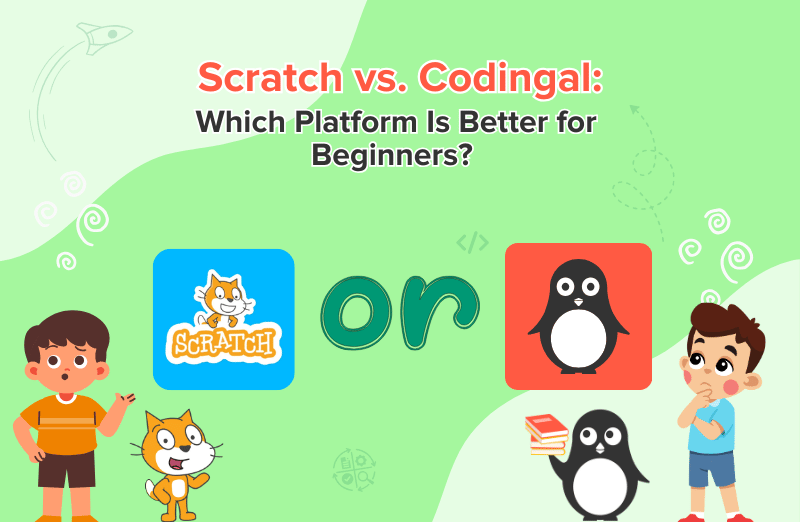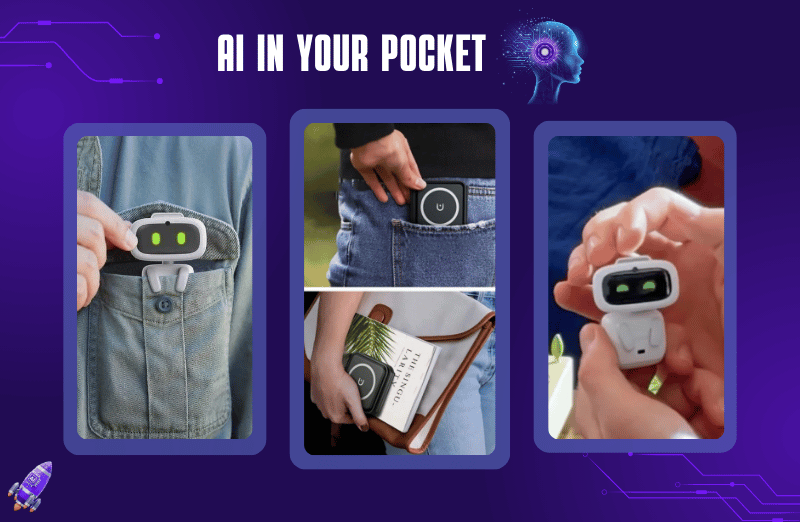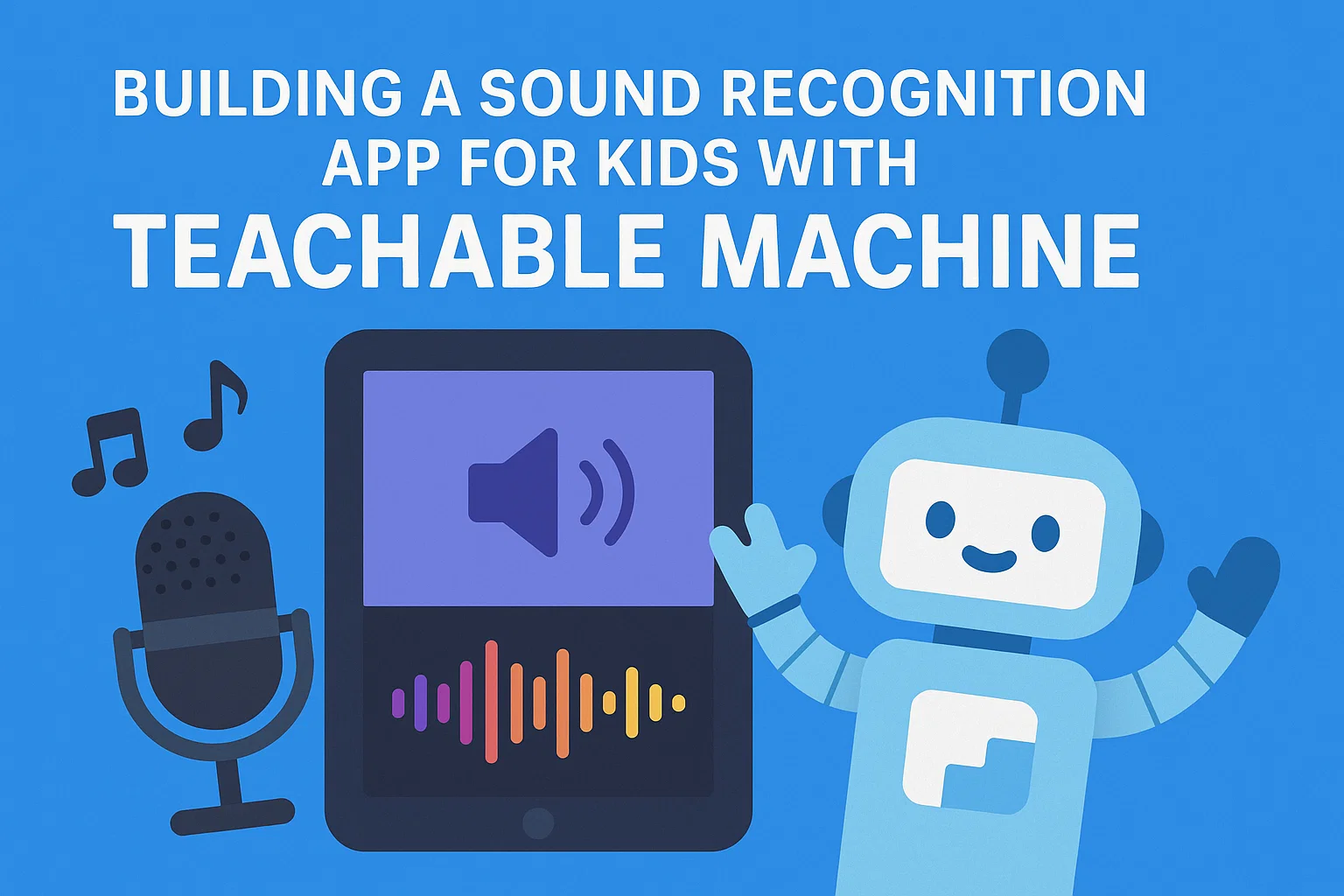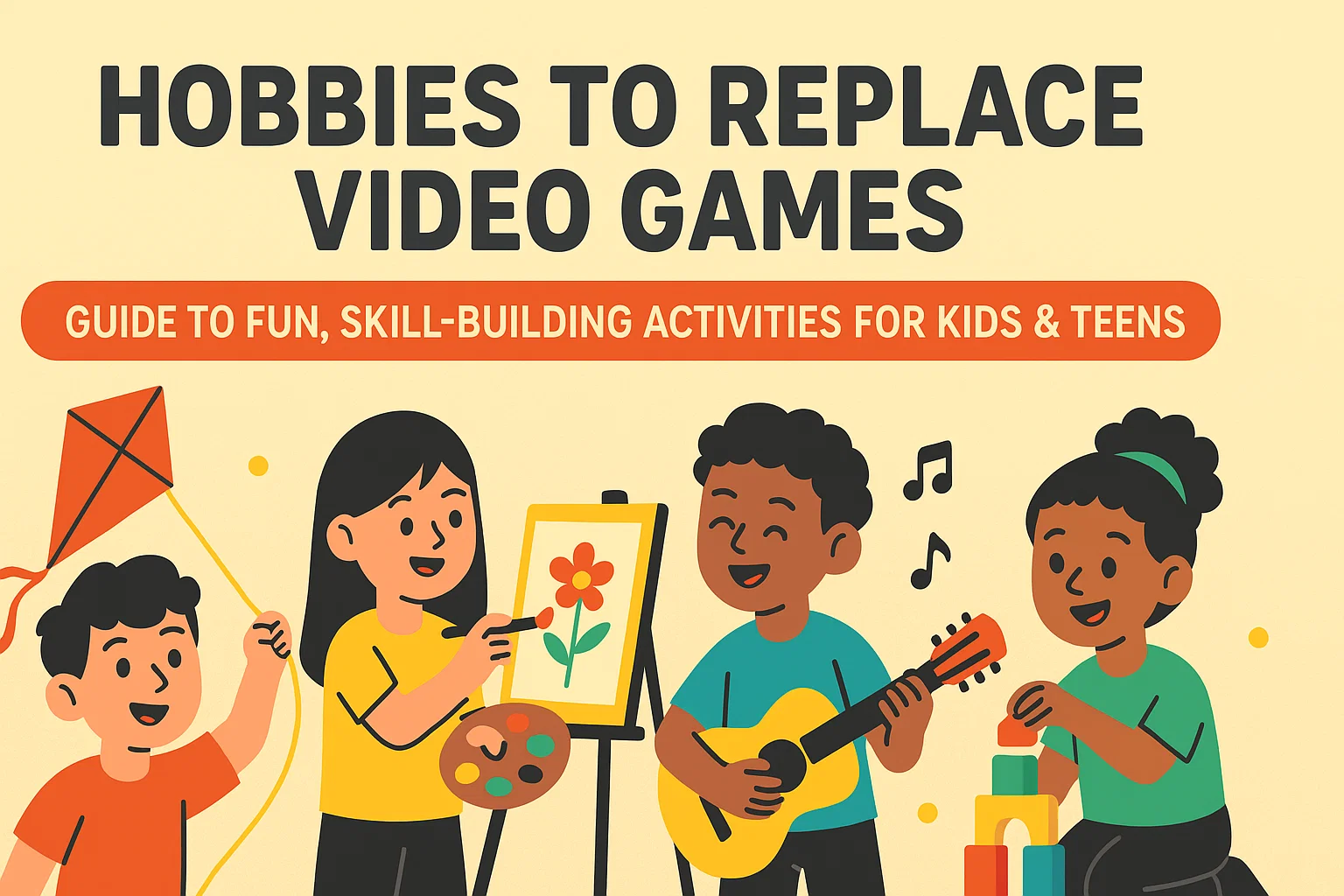Introduction
In today’s rapidly evolving digital landscape, one-size-fits-all education is becoming obsolete. The future belongs to personalized learning experiences that adapt to each student’s unique strengths, interests, and learning pace. This shift is particularly crucial in AI and coding education, where students come with vastly different backgrounds, skill levels, and career aspirations.
Personalized learning is a teaching approach that considers students’ strengths, knowledge, needs, interests, individual differences, and learning styles (APU). This educational philosophy has proven remarkably effective, with students in personalized learning environments performing 30% better on tests than those in traditional learning settings (Matsh). For coding education specifically, this approach becomes even more critical as students must master both technical concepts and creative problem-solving skills.
Codingal, a Y Combinator-backed online coding and AI education platform, has emerged as a leader in delivering customizable learning paths for K-12 students worldwide (Codingal). With over 500,000 registered students across 70+ countries and a 4.8/5 average class rating, Codingal demonstrates how personalized education can scale while maintaining quality and effectiveness.
The Science Behind Personalized Learning in Coding Education
Understanding Individual Learning Differences
Every student brings a unique combination of prior knowledge, learning preferences, and cognitive strengths to their coding journey. Research shows that personalized learning involves collaborative approaches with experts and others to ensure that technology, data, and self-paced learning experiences are scaled to create more flexible learning environments for students (APU). This approach is particularly powerful in coding education, where abstract concepts must be translated into practical, hands-on skills.
Personalized Learning Systems (PLS) use data from student interactions to generate real-time recommendations about what students should do next to achieve their learning goals (KidoCode). This adaptive approach ensures that students are neither overwhelmed by content that’s too advanced nor bored by material that’s too basic for their current skill level.
The Impact of Customization on Learning Outcomes
The effectiveness of personalized learning in coding education is backed by compelling data. Students under personalized learning show improvements in math and reading scores by 8 and 9 points respectively (Matsh). When applied to coding education, this translates to better problem-solving skills, increased retention of programming concepts, and higher completion rates for complex projects.
Personalized learning also significantly boosts student interest and grades (Matsh). This is particularly important in coding education, where maintaining engagement through challenging concepts like algorithms, data structures, and debugging is crucial for long-term success.
Codingal’s Approach to Customizable Learning Paths
The Three-Tier Mastery System
Codingal has developed a sophisticated three-tier system that allows students to choose their learning intensity and depth based on their goals, available time, and current skill level. This system includes:
Coding Champion: Designed to advance coding skills and build a deeper understanding of complex coding concepts, this course includes 48 lessons, over 100 activities, and more than 48 quizzes (Codingal). Suitable for students from Grade 1 to Grade 12, this entry-level path provides a solid foundation while allowing students to explore their interests.
Coding Prodigy: For children who want to excel at coding and build complex websites, games, and applications, this intermediate path includes 96 lessons, over 184 activities, and more than 96 quizzes (Codingal). This course is suitable for children from Grade 1 to Grade 12 and provides a more intensive learning experience.
Coding Grandmaster: The most comprehensive offering, designed for child geniuses who want to excel at coding and build complex websites, games, and applications. This advanced course includes 144 lessons, over 350 activities, and more than 144 quizzes (Codingal). The course is structured for different grade levels, from Grade 1-3 to Grade 9-10, ensuring age-appropriate progression.
Adaptive Content Delivery
Each tier in Codingal’s system provides a tailored educational experience based on students’ specific needs and interests (KidoCode). The platform uses data from student interactions to continuously refine and personalize the learning experience, ensuring that each student receives content that matches their current skill level and learning pace.
Deep Dive: The Grandmaster Experience
Structure and Progression
The Coding Grandmaster course represents the pinnacle of Codingal’s personalized learning approach. With 144 interactive lessons, this comprehensive program demonstrates how customizable learning paths can accommodate different learning styles and paces while maintaining rigorous educational standards (Codingal).
The course structure allows students to:
- Progress at their own pace through the 144 lessons
- Engage with over 350 hands-on activities that reinforce learning
- Test their understanding through more than 144 quizzes
- Build real-world projects that demonstrate mastery
Technology Integration and Tools
Codingal’s curriculum incorporates cutting-edge tools and technologies that prepare students for real-world programming challenges. Students work with popular platforms including Scratch, Python, Roblox, Minecraft, MIT App Inventor, and various web development technologies (Codingal).
For younger students, Codingal offers specialized tools like Trinket, which serves as a magical playground where kids can bring their ideas to life through code (Codingal). Using simple blocks and Python’s Turtle module, students create drawings, animations, and games while building a strong foundation in Python programming.
Advanced Programming Concepts
As students progress through the Grandmaster path, they encounter increasingly sophisticated programming concepts. The curriculum includes advanced topics like game development using Pygame, where students learn to create interactive games while mastering object-oriented programming principles (Codingal).
For students interested in enterprise-level programming, the curriculum includes comprehensive Java training that covers everything from basic syntax to advanced concepts like multithreading and database connectivity (Codingal). This progression ensures that students can transition from visual programming to text-based coding seamlessly.
The Role of AI in Personalized Learning
Generative AI Integration
The integration of generative AI in computer science education has shown remarkable promise in accelerating learning outcomes. Recent research evaluating the effectiveness of integrating generative AI, specifically OpenAI’s ChatGPT, into self-paced Python programming modules shows significant improvements in student performance (ArXiv). This study involved 86 adult learners with varying levels of programming experience who used ChatGPT to generate, interpret, and debug code.
Codingal leverages AI-driven learning to inspire the next generation of tech leaders by combining the best of human instruction and AI-powered educational tools (Codingal). This hybrid approach ensures that students receive personalized guidance while benefiting from the scalability and consistency that AI provides.
Adaptive Assessment and Feedback
AI-powered systems can provide immediate feedback on coding exercises, helping students identify and correct mistakes in real-time. This immediate feedback loop is crucial for maintaining engagement and preventing the frustration that often leads to student dropout in traditional coding courses.
The use of AI in personalized learning systems allows for continuous assessment of student progress, automatically adjusting difficulty levels and suggesting additional resources when students struggle with particular concepts (KidoCode).
Student Success Stories and Data-Driven Outcomes
Measurable Learning Improvements
Codingal’s approach to personalized learning has yielded impressive results across its global student base. With over 500,000 registered students and a 4.9/5 student rating, the platform demonstrates the effectiveness of customizable learning paths in coding education (Codingal).
The platform’s Net Promoter Score (NPS) of 86 indicates exceptionally high student and parent satisfaction, suggesting that the personalized approach not only improves learning outcomes but also enhances the overall educational experience (Codingal).
Global Reach and Accessibility
Codingal’s success across 70+ countries demonstrates how personalized learning can transcend geographical and cultural boundaries (Codingal). The platform’s ability to adapt to different educational systems, time zones, and cultural contexts while maintaining consistent quality shows the scalability of well-designed personalized learning systems.
Competitive Performance
Students who complete Codingal’s programs regularly participate in global coding competitions, hackathons like HPE CodeWars, and online coding camps, fostering creativity, confidence, and a spirit of innovation (Codingal). This competitive success demonstrates that personalized learning paths can prepare students for high-level challenges and real-world applications.
Comparing Personalized vs. Traditional Coding Education
Traditional Coding Education Limitations
Traditional coding education often follows a rigid, one-size-fits-all approach that can leave some students behind while boring others who are ready for more advanced concepts. This approach typically involves:
- Fixed pacing that doesn’t accommodate individual learning speeds
- Limited customization based on student interests or career goals
- Minimal real-time feedback and assessment
- Lack of adaptive content delivery
The Personalized Learning Advantage
In contrast, personalized learning platforms like Codingal offer several key advantages:
- Flexible Pacing: Students can spend more time on challenging concepts while accelerating through material they grasp quickly. The 144-lesson structure of the Grandmaster program allows for this flexibility while ensuring comprehensive coverage of essential topics (Codingal).
- Interest-Based Learning: Students can choose specialization tracks based on their interests, whether that’s game development, web development, or AI and machine learning (Codingal).
- Continuous Assessment: With over 144 quizzes and 350+ activities in the Grandmaster program alone, students receive constant feedback on their progress (Codingal).
- Real-World Application: Projects and activities are designed to mirror real-world programming challenges, ensuring that students develop practical skills alongside theoretical knowledge.
The Technology Stack Behind Personalized Learning
Platform Architecture
Codingal’s platform demonstrates how modern educational technology can support truly personalized learning experiences. The platform integrates multiple programming environments and tools, allowing students to work with everything from visual programming languages like Scratch to advanced frameworks for AI and machine learning (Codingal).
Interactive Learning Environments
The platform includes specialized environments for different types of programming:
- Visual Programming: Tools like Trinket provide a browser-based environment where students can experiment with Python’s Turtle module to create drawings and animations (Codingal). This approach helps students understand programming logic before transitioning to text-based coding.
- Game Development: Pygame integration allows students to create interactive games while learning object-oriented programming concepts (Codingal). This hands-on approach makes abstract programming concepts tangible and engaging.
- Animation and Graphics: Specialized courses in animation help students understand the mathematical concepts behind computer graphics while developing creative skills (Codingal).
Assessment and Progress Tracking
The platform’s assessment system goes beyond simple right/wrong answers to provide detailed insights into student understanding. This comprehensive approach helps instructors identify areas where students need additional support and adjust the learning path accordingly.
The Future of Personalized Coding Education
Emerging Trends and Technologies
The landscape of coding education continues to evolve rapidly, with several key trends shaping the future:
- AI-Powered Tutoring: Advanced AI systems are becoming increasingly sophisticated at providing personalized tutoring and support. Research shows that AI integration in programming education can significantly accelerate learning outcomes (ArXiv).
- Immersive Learning Environments: Virtual and augmented reality technologies are beginning to create more immersive coding experiences, allowing students to visualize abstract concepts in three-dimensional space.
- Collaborative Learning Platforms: Future platforms will likely emphasize peer-to-peer learning and collaboration, allowing students to work together on projects while still receiving personalized instruction.
Preparing Students for Future Careers
Codingal’s comprehensive curriculum prepares students for a wide range of technology careers by exposing them to multiple programming languages and paradigms (Codingal). From web development with HTML, CSS, and JavaScript to data science and AI applications, students gain exposure to the tools and technologies they’ll encounter in professional settings.
The platform’s emphasis on project-based learning ensures that students build portfolios of real-world applications, giving them a competitive advantage when applying for internships, college programs, or entry-level positions in technology.
Implementation Strategies for Educational Institutions
Adopting Personalized Learning Approaches
Educational institutions looking to implement personalized learning in their coding curricula can learn from Codingal’s approach:
- Start with Assessment: Understanding each student’s current skill level, interests, and learning preferences is crucial for creating effective personalized learning paths.
- Provide Multiple Pathways: Offering different tracks or intensity levels, similar to Codingal’s Champion, Prodigy, and Grandmaster programs, allows students to choose the path that best fits their goals and circumstances (Codingal).
- Integrate Real-World Projects: Hands-on projects that mirror real-world programming challenges help students see the practical applications of their learning.
- Continuous Feedback and Adjustment: Regular assessment and feedback loops ensure that learning paths remain aligned with student needs and progress.
Overcoming Implementation Challenges
While personalized learning offers significant benefits, implementation can present challenges:
- Resource Requirements: Personalized learning often requires more initial investment in technology and training compared to traditional approaches.
- Teacher Training: Instructors need training on how to effectively use personalized learning platforms and interpret student data to make informed instructional decisions.
- Student Adaptation: Some students may initially struggle with the increased responsibility and self-direction required in personalized learning environments.
Measuring Success in Personalized Learning
Key Performance Indicators
Successful personalized learning programs track multiple metrics to ensure effectiveness:
- Learning Outcomes: Traditional measures like test scores and project completion rates remain important, but personalized learning also considers individual progress and growth.
- Engagement Metrics: Time spent on platform, activity completion rates, and voluntary participation in additional challenges indicate student engagement levels.
- Long-term Retention: The ultimate test of personalized learning is whether students continue to pursue coding and technology after completing their initial courses.
Codingal’s Success Metrics
Codingal’s impressive metrics demonstrate the effectiveness of their personalized approach:
- 4.9/5 student rating indicates high satisfaction with the learning experience (Codingal)
- NPS of 86 shows strong likelihood of student and parent recommendations
- Global reach across 70+ countries demonstrates scalability and adaptability
- Over 500,000 registered students indicates strong market validation
The Role of Human Instructors in Personalized Learning
Balancing Technology and Human Interaction
While technology enables personalized learning at scale, human instructors remain crucial for providing mentorship, motivation, and complex problem-solving guidance. Codingal’s approach combines AI-driven personalization with expert human instruction, ensuring that students receive both the efficiency of automated systems and the nuanced support that only human teachers can provide (Codingal).
The Evolving Role of Educators
In personalized learning environments, educators transition from information deliverers to learning facilitators and mentors. They help students navigate their personalized learning paths, provide encouragement during challenging periods, and offer insights that go beyond what automated systems can provide.
Codingal’s instructors come from computer science backgrounds and are trained to work within the personalized learning framework, helping students make the most of their customized educational experience (Codingal).
Global Impact and Accessibility
Breaking Down Barriers to Quality Education
Personalized learning platforms like Codingal are democratizing access to high-quality coding education. Students in regions with limited access to technology education can now receive world-class instruction tailored to their individual needs and circumstances.
The platform’s success across diverse markets demonstrates how personalized learning can adapt to different educational systems, cultural contexts, and economic conditions while maintaining educational quality (Codingal).
Supporting Diverse Learning Needs
Personalized learning is particularly beneficial for students with diverse learning needs, including those with learning differences, varying levels of prior knowledge, or different cultural backgrounds. The adaptive nature of personalized systems ensures that all students can find a path to success in coding education.
Conclusion: The Future is Personalized
The evidence is clear: personalized learning represents the future of coding education. With students in personalized learning environments performing 30% better than those in traditional settings (Matsh), the benefits extend far beyond simple test scores to include increased engagement, better retention, and more successful long-term outcomes.
Codingal’s success with over 500,000 students across 70+ countries demonstrates that personalized learning can scale while maintaining quality and effectiveness (Codingal). Their three-tier system, from the 48-lesson Coding Champion to the comprehensive 144-lesson Grandmaster program, shows how customizable learning paths can accommodate students with vastly different goals, backgrounds, and learning preferences (Codingal).
As we look toward the future, the integration of AI and machine learning will make personalized learning even more sophisticated and effective. Research showing the benefits of AI integration in programming education points toward a future where every student receives truly individualized instruction (ArXiv).
For educators, parents, and students considering coding education options, the message is clear: seek out programs that offer genuine personalization, multiple learning paths, and the flexibility to adapt to individual needs. The future belongs to those who can harness technology not just as users, but as creators and innovators. Personalized learning in coding education is the key to unlocking that future for every student, regardless of their starting point or ultimate destination.
The transformation of education through personalization is not just a trend—it’s a fundamental shift toward recognizing and nurturing the unique potential within every learner. As platforms like Codingal continue to refine and expand their personalized learning approaches, we move closer to a world where every student can achieve their full potential in the exciting and rapidly evolving field of technology.
Frequently Asked Questions
What are the three tiers of Codingal’s AI & Coding Mastery Programs?
Codingal offers three progressive tiers: Coding Champion (48 lessons, 100+ activities), Coding Prodigy (96 lessons, 184+ activities), and Coding Grandmaster (144 lessons, 350+ activities). Each tier is designed for different skill levels and includes comprehensive quizzes and hands-on projects suitable for grades 1-12.
How effective is personalized learning compared to traditional education methods?
Research shows that students in personalized learning environments perform 30% better on tests than those in traditional learning settings. Additionally, personalized learning approaches lead to improvements of 8 and 9 points in math and reading scores respectively, while significantly boosting student interest and engagement.
What programming languages and tools does Codingal teach in their courses?
Codingal’s curriculum includes a comprehensive range of programming languages and tools including Python, Java, Pygame for game development, and Trinket for interactive coding projects. Students progress from block-based coding to real-world programming languages, building complex websites, games, and applications.
How does Codingal’s Personalized Learning System (PLS) adapt to individual students?
Codingal’s PLS uses data from student interactions to generate real-time recommendations about what students should do next to achieve their learning goals. The system provides individualized content, pace, and support based on each student’s specific needs, interests, and learning style.
What age groups can benefit from Codingal’s customizable learning paths?
Codingal’s programs are designed for students aged 5-17, covering grades 1-12. The three-tier system allows students to start at their appropriate skill level and progress through increasingly complex coding concepts, ensuring age-appropriate learning experiences across all developmental stages.
How does generative AI integration enhance coding education for students?
Recent studies show that integrating generative AI tools like ChatGPT into coding education accelerates learning by helping students generate, interpret, and debug code more effectively. This approach supports self-paced learning and provides instant feedback, making complex programming concepts more accessible to young learners.
Sources
- https://arxiv.org/abs/2505.20329
- https://www.apu.apus.edu/area-of-study/education/resources/the-benefits-of-personalized-learning/
- https://www.codingal.com/courses/coding-champion/
- https://www.codingal.com/courses/coding-grandmaster/
- https://www.codingal.com/courses/coding-prodigy/
- https://www.codingal.com/en-US/
- https://www.codingal.com/en-us/courses/animation/
- https://www.codingal.com/en-us/courses/java/
- https://www.codingal.com/en-us/courses/pygame/
- https://www.codingal.com/en-us/courses/trinket/
- https://www.kidocode.com/blog/personal-learning-system
- https://www.matsh.co/en/statistics-on-personalized-learning-effectiveness/
FAQ
What are the three tiers of Codingal’s AI & Coding Mastery Programs?
Codingal offers three progressive tiers: Coding Champion (48 lessons, 100+ activities), Coding Prodigy (96 lessons, 184+ activities), and Coding Grandmaster (144 lessons, 350+ activities). Each tier is designed for different skill levels and includes comprehensive quizzes and hands-on projects suitable for grades 1-12.
How effective is personalized learning compared to traditional education methods?
Research shows that students in personalized learning environments perform 30% better on tests than those in traditional learning settings. Additionally, personalized learning approaches lead to improvements of 8 and 9 points in math and reading scores respectively, while significantly boosting student interest and engagement.
What programming languages and tools does Codingal teach in their courses?
Codingal’s curriculum includes a comprehensive range of programming languages and tools including Python, Java, Pygame for game development, and Trinket for interactive coding projects. Students progress from block-based coding to real-world programming languages, building complex websites, games, and applications.
How does Codingal’s Personalized Learning System (PLS) adapt to individual students?
Codingal’s PLS uses data from student interactions to generate real-time recommendations about what students should do next to achieve their learning goals. The system provides individualized content, pace, and support based on each student’s specific needs, interests, and learning style.
What age groups can benefit from Codingal’s customizable learning paths?
Codingal’s programs are designed for students aged 5-17, covering grades 1-12. The three-tier system allows students to start at their appropriate skill level and progress through increasingly complex coding concepts, ensuring age-appropriate learning experiences across all developmental stages.
How does generative AI integration enhance coding education for students?
Recent studies show that integrating generative AI tools like ChatGPT into coding education accelerates learning by helping students generate, interpret, and debug code more effectively. This approach supports self-paced learning and provides instant feedback, making complex programming concepts more accessible to young learners.
Citations
- https://arxiv.org/abs/2505.20329
- https://www.apu.apus.edu/area-of-study/education/resources/the-benefits-of-personalized-learning/
- https://www.codingal.com/courses/coding-champion/
- https://www.codingal.com/courses/coding-grandmaster/
- https://www.codingal.com/courses/coding-prodigy/
- https://www.codingal.com/en-US/
- https://www.codingal.com/en-us/courses/animation/
- https://www.codingal.com/en-us/courses/java/
- https://www.codingal.com/en-us/courses/pygame/
- https://www.codingal.com/en-us/courses/trinket/
- https://www.kidocode.com/blog/personal-learning-system
- https://www.matsh.co/en/statistics-on-personalized-learning-effectiveness/














